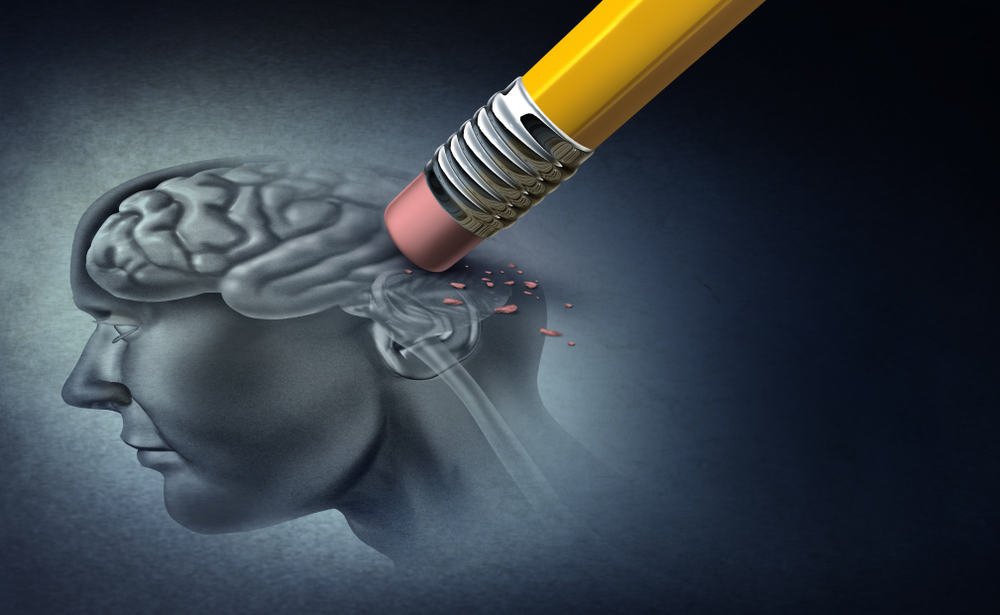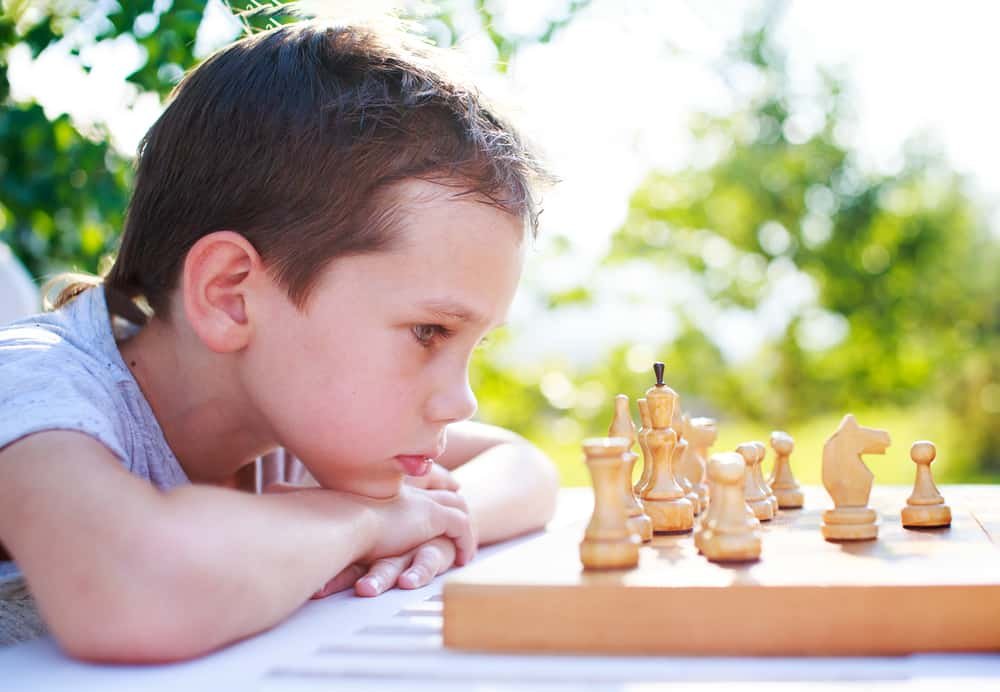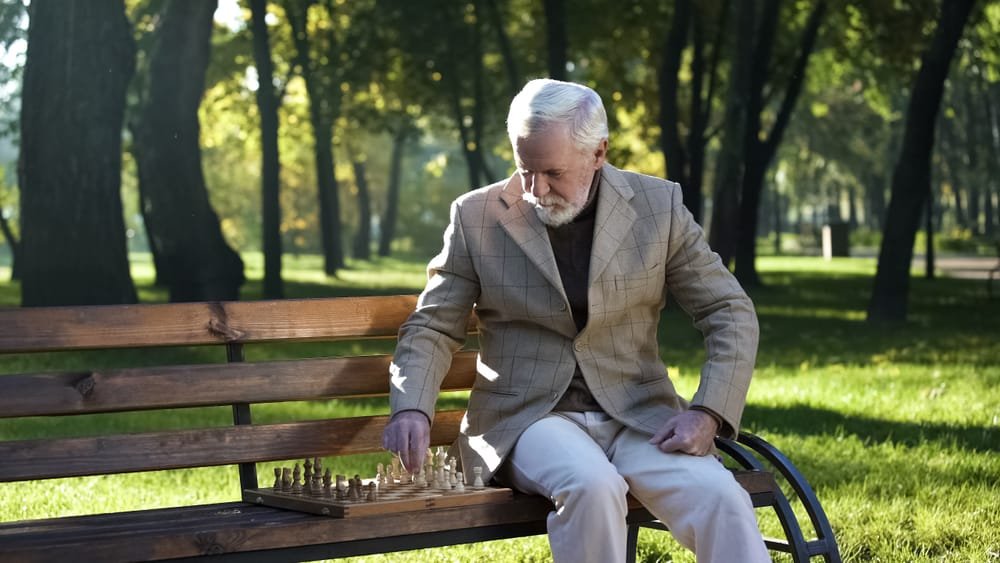Last Updated on January 7, 2024 by Gamesver Team and JC Franco

In case you are unaware or have never heard of chess (quite unlikely but I’ll humor you), it is a highly strategic game that consists of two players and one checkered board consisting of 64 boxes in an 8×8 grid. It is the ultimate thinking game that takes years of practice to perfect.
Right now, you may be asking yourself, ‘what are the benefits
There are many benefits to playing chess, for both adults and kids alike. The majority of these benefits deal with developing and improving cognitive brain functions, including problem-solving, creative thinking, strategic planning, pattern recognition, and memorization skills. Also, it helps to potentially raise IQ levels while teaching sportsmanship and building self-confidence at the same time. Not to mention, it is so much fun to play!
Now, let’s take a closer look at these benefits below. We will discuss how the game can develop and improve cognitive brain function in its many forms by exploring each individual point in more detail.
So, if you’re ready to learn more about the exciting game of chess and its benefits, then let’s get started!
These are 21 benefits of playing chess.
Content
Toggle1. Develops the Ability to Think Rationally.

Chess develops one’s ability to think rationally as well as logically. Players must think ‘outside the box’, in order to increase their odds at winning the game. This type of rational thinking promotes a sense of curiosity and wonder (about the world), which is excellent for everybody, especially children.
2. Builds Self-Confidence.
Playing chess not only increases a player’s level of mental strength but also imparts a sense of self-esteem and self-confidence when one is able to win at such a challenging game. This skill goes far beyond the chessboard and builds self-worth that translates into everyday life, benefitting children, teenagers, and adults.
3. Helps Prevent Alzheimer’s (Disease) and Dementia.
The brain, just like any other muscle, requires exercise to stay strong and healthy. The game of chess is a highly-strategic thinking game that improves brain function. It has been proven in medical studies to reduce the risk of certain degenerative brain diseases such as Alzheimer’s and Dementia.

4. Helps Treat Schizophrenia.
Schizophrenia is a mental disorder that causes many physical, psychological, and emotional problems. Doctors at the Center for Cognitive Neuroscience in France discovered that those suffering from this disorder showed a marked improvement in their overall condition after engaging in chess play.
5. Teaches the Virtue of Patience.
The average chess game takes 40 moves, lasting anywhere from 20 minutes to several hours! Each move takes time to calculate, plan and execute. Children, teens, as well as adults, can all benefit from learning that patience is indeed a virtue and that all positive things come to those who wait.
6. Promotes the Growth of Dendrites in the Brain.
Dendrites are like tree branches in the brain that conduct signals from neural cells to the neurons they’re attached to. They are vital for brain functioning and growth. Playing chess from a young age has been shown to contribute to the growth of these ‘branches’, thus developing and improving cognitive function.
7. Exercises the Brain.
The brain is like a muscle – it becomes faster and stronger with exercise. A German study has shown that active chess engages both the left and right hemispheres of a person’s brain simultaneously. This is great for developing not only mathematical skills and science logic (controlled by the left hemisphere) but also creativity and imagination (controlled by the right hemisphere) in both kids and adults.

8. Increases IQ Levels.
It has often been said that smart people play chess! Learning the game at a young age has been proven to significantly raise a child’s IQ level. There definitely seems to be a direct link to chess skill and intelligence. Studies conducted over the last 30 years show an increase in student IQ levels and test scores after less than a single year of systematic chess play!
9. Teaches Sportsmanship.
The game of chess teaches fairness and sportsmanship to people of all ages. It creates an environment in which one must be prepared to either win or lose and do so gracefully, regardless of the outcome. This skill is transferable and highly useful in life, especially for young adults entering the professional workforce.
10. Improves Problem-Solving Skills.
The game of chess involves multiple aptitudes, including problem-solving, analysis, and logic. It is a game that requires one to think, process, plan, and execute. A study done between 1990 and 1992 in New Brunswick, Canada demonstrated that when integrating chess games into the traditional mathematical curriculum, students scored significantly higher marks on problem-solving tests.
11. Improves Concentration.

Concentration and focus are the keys to winning at chess. Paying close attention to each and every detail of the game is a must. Chess helps develop this skill in both youngsters and adults, which is highly useful not only when playing the game but in everyday life situations as well.
12. Develops Spatial Skills.
Spatial skills involve the ability to visualize an object in space, picture its fixed position and then mentally manipulate the image. This is key in the game of chess, as players must be able to calculate and analyze variations 10 moves deep! Playing chess helps to develop this skill in both children and adults and is especially useful for women, as research has recently shown men to be more advanced in this area.
13. Improves Memory Function.
It is a well-known fact that chess helps improve mental and memory function. Players must not only remember each move made by an opponent in the game but also determine how these moves can be used to his/her advantage. This is especially good for developing memorization skills in school-aged children.
14. Develops Creative Thinking.

Creative and artistic thinking is also improved by playing chess, though most people don’t realize it! A former study showed that students between the 7th and 9th grade who played chess regularly scored higher in creativity-based activities than the ones who did not. Active chess play engages the right hemisphere (creativity and imagination) as well as the left (logic and reasoning).
15. Raises Abstract Reasoning Awareness.
The game of chess is great for developing and improving abstract reasoning skills in children, teens, and adults. It helps players recognize patterns and develop strategies based on those patterns. The ‘if…then’ scenarios in abstract thinking are greatly improved through chess play.
16. Improves the Ability to Think Under Pressure.
Learning how to stay composed under pressure is greatly enhanced in those who play chess. Opponents must remain focussed at all times in order to determine the best possible move before their time runs out! The capacity to stay cool, calm, as well as collected, no matter what happens is a life skill that benefits people of all ages.
17. Develops Pattern Recognition Skills.
Recognizing patterns is a skill greatly enhanced through chess play. Players must be aware of the different moves made and how they will ultimately affect the outcome of the game. Pattern recognition plays a vital role in life (especially for children) when it comes to reading texts, identifying objects, and relating to people.
18. Teaches Planning and Foresight.

Preparing a strategy and then predicting the outcome is a key characteristic of chess. Planning and foresight are important, not only in the game of chess but in the game of life as well! Being able to better prepare for life’s difficulties (and foresee possible outcomes) teaches children (and adults) how to solve problems and face obstacles in productive, creative ways.
19. Improves Strategic Thinking.
Strategy is a crucial component in the game of chess. It requires structured thinking and careful deliberation. People of all ages can benefit from learning this vital life skill, which also aids in other cognitive functions, including problem-solving, pattern recognition, and creative thinking.
20. Aids with Rehabilitation Therapy.
The game of chess can be used to help rehabilitate patients recovering from a physically debilitating accident, heart attack/stroke, or other forms of developmental disability. By moving chess pieces across a board, motor skills are fine-tuned while stimulating cognitive functions. It also helps to relax those suffering from anxiety or stress.
21. Just For the Fun of It.
The greatest benefit of all (for playing chess) is simply for the fun of it! It is one of the oldest board games in history with almost endless possibilities. This makes the game both exciting and dynamic. What could be more fun than beating an opponent at such a legendary game of skill and strategy?
All in all

The game of chess is highly-strategic and often considered the ultimate thinking game. Players practice for years to achieve success. It is through both practice and play that cognitive brain function is developed and improved.
It is never too late to learn to play chess. So why not get started today and reap the many mental and psychological benefits associated with the game. Good luck, fellow gamers!
This article was co-authored by our team of in-house and freelance writers, and reviewed by our editors, who enjoy sharing their knowledge about their favorite games with others!
-
Gamesver Team
-
Gamesver Team
-
Gamesver Team
-
Gamesver Team
-
Gamesver Team
-
Gamesver Team
-
Gamesver Team
-
Gamesver Team
-
Gamesver Team
-
Gamesver Team
-
Gamesver Team
-
Gamesver Team
-
Gamesver Team
-
Gamesver Team
-
Gamesver Team
-
Gamesver Team
-
Gamesver Team
-
Gamesver Team
-
Gamesver Team
-
Gamesver Team
-
Gamesver Team
-
Gamesver Team
-
Gamesver Team
-
Gamesver Team
-
Gamesver Team
-
Gamesver Team
-
Gamesver Team
-
Gamesver Team
-
Gamesver Team
-
Gamesver Team
-
Gamesver Team
-
Gamesver Team
-
Gamesver Team
-
Gamesver Team
-
Gamesver Team
-
Gamesver Team
-
Gamesver Team
-
Gamesver Team
-
Gamesver Team
-
Gamesver Team
-
Gamesver Team
-
Gamesver Team
-
Gamesver Team
-
Gamesver Team
-
Gamesver Team
-
Gamesver Team
-
Gamesver Team
-
Gamesver Team
-
Gamesver Team
-
Gamesver Team
-
Gamesver Team
-
Gamesver Team
-
Gamesver Team
-
Gamesver Team
-
Gamesver Team
-
Gamesver Team
-
Gamesver Team
-
Gamesver Team
-
Gamesver Team
-
Gamesver Team
JC Franco
JC Franco serves as a New York-based editor for Gamesver. His interest for board games centers around chess, a pursuit he began in elementary school at the age of 9. Holding a Bachelor’s degree in Business from Mercyhurst University, JC brings a blend of business acumen and creative insight to his role. Beyond his editorial endeavors, he is a certified USPTA professional, imparting his knowledge in tennis to enthusiasts across the New York City Metropolitan area.

